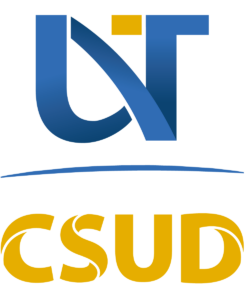Field of Economics
Since its establishment, the doctoral program has aimed to provide advanced-level doctoral training designed to develop internationally relevant research competencies.
The Economics field, within the Doctoral School of Economics and Business Administration (DSEBA), equips graduates with essential theoretical and methodological skills necessary for producing well-founded solutions, studies, and analyses in scientific research at the micro, meso, and macro economic levels.
The activity of the doctoral schools within IOSUD-UVT is aligned with the mission of the West University of Timișoara to promote advanced scientific research and education. The research mission defined at the level of the Doctoral School is reflected in each field of study—for example, through the establishment of minimum standards regarding the quality of the scientific work conducted by doctoral students.
Doctoral supervisors
Thematic areas of interest (2026)
Prof. univ. dr. Jivan Alexandru
- Productivitate (și servicitate, în sens larg), în optica Schemei Genaralizate a Servirii;
- Schematizarea/modelarea inter-corelărilor pe piață între entități economice specifice.
Prof. univ. dr. Cismaș Laura Mariana
- Economie comportamentală avansată (Economia ca și sistem complex uman adaptativ; Comportamentul economic. Neuroeconomia; Economie comportamentală și economia sănătății; Microeconomia și comportamentul. Economia comportamentală a organizațiilor; Sfârșitul macroeconomiei? Limite ale modelelor de creștere clasice și neoclasice; Evoluția economică a instituțiilor din perspectiva economiei comportamentale);
- Economie europeană și dezvoltare regională (Creștere, dezvoltare și competitivitate regională; Creștere economică și competitivitate la nivelul Uniunii Europene; Venit, consum, economisire, investiții din perspectivă comparativă europeană; Disparități regionale în România și Uniunea Europeană și perspectiva procesului de convergență în relație cu Uniunea Europeană; Dezvoltarea regionala a României în contextul aplicării politicii de coeziune a Uniunii Europene; Dinamica economiei românești post-aderare și convergenta reala);
- Economie instituțională și macroeconomie aprofundată (Piața muncii în perioada celei de-a patra revoluții industriale – necesitatea unor abordări instituționale inovative la nivel național/regional și european; Performanța instituțiilor și impactul acestora asupra creșterii economice la nivel regional și național; Macroeconomia într-o economie globală; Echilibrul macroeconomic și politici macroeconomice anticiclice).
Prof. univ. dr. Son Liana
- Fenomenul migraționist și dinamica salarială;
- Interdependențe spațiale în crearea și transferal de cunoștințe;
- Calitatea muncii, calitatea veții și starea de bine;
- Importanța organizării muncii asupra rezultatelor inovării.
Prof. univ. dr. Sîrghi Nicoleta
- Piețele de oligopol si evoluţionismul economic;
- Teoria jocurilor și echilibrul piețelor;
- Politica de concurenţă şi competitivitatea în UE;
- Piața muncii și teoria jocurilor.
Useful information
Proposed topics for admission (2026)
For the complete list of topics, please refer to the table (link).
The funding status of each topic (scholarship-based budget, budget without scholarship, or tuition fee) is determined based on the admission competition, in accordance with the UVT methodology.
Admission
The admission process for doctoral studies consists of an entrance exam, during which the candidate presents a scientific research project (Annex 9 of the DSEBA Doctoral Admission Regulations).
The main components of the research project are as follows:
- the title of the scientific research project (which must correspond to a topic announced by the doctoral supervisor for admission),
- a summary of the project (in Romanian and English or French),
- the content of the scientific research project,
- the objectives and research activities within the project,
- a plan for dissemination of doctoral research results,
- and a description of the candidate’s previous scientific research experience.
Candidates may choose to prepare and present the scientific research project either in Romanian or in an internationally used language.
Candidate evaluation during the admission exam will be carried out based on the criteria and indicators included in the evaluation grid for doctoral admission in the field of Economic Sciences (Annex 10 of the DSEBA Doctoral Admission Regulations).
The weighting of each evaluation criterion in the final score is as follows:
- 50% for the evaluation of the research project
- 50% for the evaluation of the candidate’s prior academic and scientific background
For more details regarding the application file, the admission calendar, and the organization of the admission process within the Doctoral School of Economics and Business Administration, please consult the DSEBA Doctoral Admission Regulations and the UVT Doctoral Admission Methodology.
Curriculum
Courses
Completion of studies
For more details about the IOSUD-West University of Timișoara study completion procedure, please visit the Doctoral Studies > Completion of doctoral studies page (link).
For field-specific details, please consult the following:
- Order of the Ministry of Education and Research no. 3018/2025, dated January 13, 2025, on the approval of the minimum mandatory national standards required for awarding doctoral degrees, published in the Official Gazette no. 78 of January 29, 2025
(applicable to doctoral students admitted from 2025 onward) (link) - Order of the Ministry of National Education no. 5110/2018, dated September 17, 2018, regarding the approval of the minimum national standards for awarding doctoral degrees, published in the Official Gazette no. 817 of September 24, 2018 (link)
(applicable to doctoral students admitted before 2025) (link) - The National Guide for Writing Doctoral Theses related to the Field of Study (forthcoming publication)
- Sections concerning the graduation procedure in the Regulations of the Doctoral School to which you are affiliated
